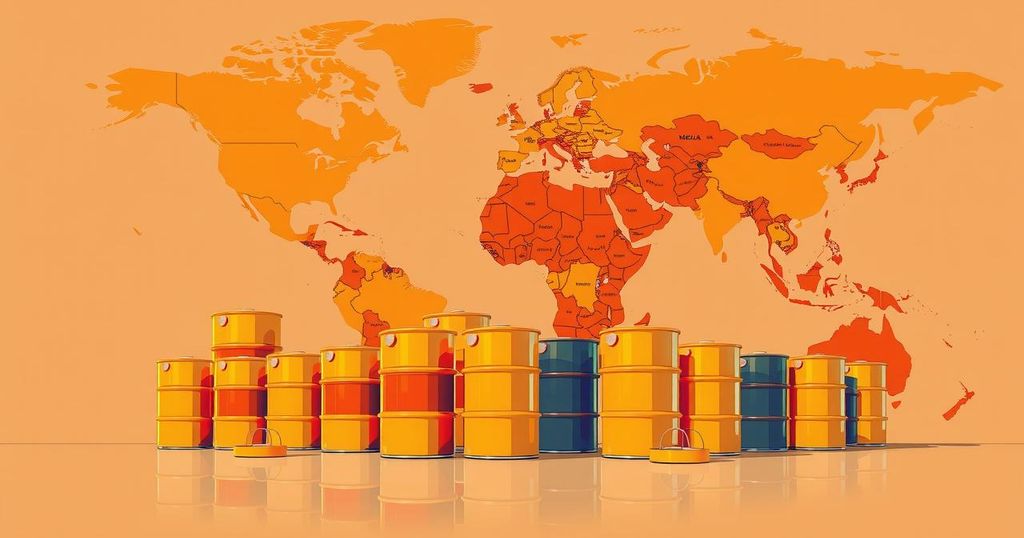Trump’s Tariffs on Venezuelan Oil Imports: Implications for Global Trade
President Trump has announced severe tariffs of 25% on countries purchasing oil and gas from Venezuela, which could notably affect China and India. Set to take effect on April 2, these tariffs are part of Trump’s strategy to correct perceived trade imbalances and confront hostile foreign actions. His administration is considering targeted tariffs while the overall trade situation continues to evolve.
US President Donald Trump has announced significant tariffs on countries importing oil and gas from Venezuela. The tariffs, amounting to 25 percent, are set to take effect on April 2 and could particularly impact economies like China and India, raising concerns about global trade dynamics. This measure is part of Trump’s broader strategy to leverage tariffs as a tool to influence both economic and diplomatic relations worldwide.
Since his return to the White House, Trump has implemented tariffs across the board, targeting both allies and adversaries. These tariffs are designed to amend practices that the United States perceives as unfair. The president has emphasized that the imposition of these secondary tariffs against nations buying Venezuelan oil comes with justification based on Venezuela’s actions against the US.
Citing national security reasons, Trump accused Venezuela of covertly sending criminals into the US. He stated that Venezuela’s unfriendly stance towards the US necessitated such measures. Previously, Venezuela had redirected its oil exports to major economies including China and India despite sanctions imposed by the US.
Notably, Trump’s announcement coincides with the cessation of the deportation agreement between the US and Venezuela, suggesting strained relations further complicate these economic interactions. Recent developments indicated that an agreement to resume repatriation of Venezuelans had been reached, with US deportations occurring through Honduras.
The upcoming tariffs are part of a wider array of measures promised by Trump, which may also include sector-specific tariffs related to automobiles, pharmaceuticals, and semiconductors. While reports indicate that these tariffs might be reassessed based on specific trading partners, the administration seems committed to imposing significant tariffs to rectify trade imbalances.
In conclusion, President Trump’s declaration of substantial tariffs on countries purchasing Venezuelan oil and gas introduces additional volatility into global trade relations, especially for nations like China and India. The use of tariffs as a foreign policy tool underscores the administration’s approach to confront practices deemed unfavorable. While future tariffs may be narrowed, the intent to recalibrate international trade relationships remains strong.
Original Source: www.hindustantimes.com




Post Comment